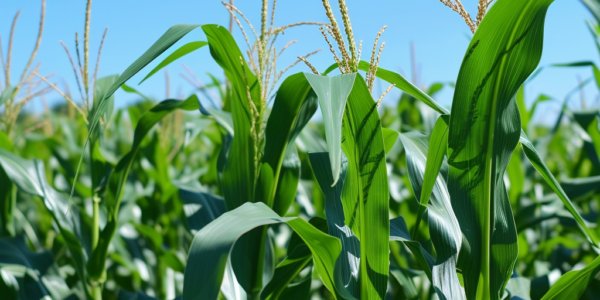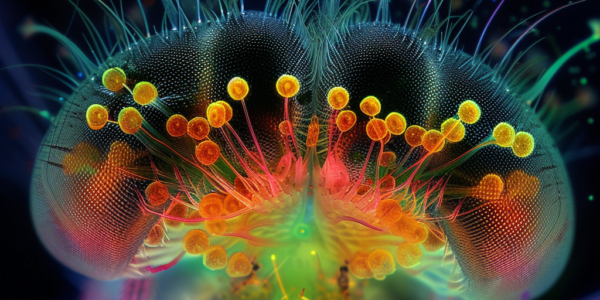Research Suggests Global Decrease in Carbon Dioxide Emissions Caused Earth’s Longest Ice Age
Recent research from the University of Sydney suggests that Earth’s longest ice age, known as Snowball Earth, may have been caused by a global decrease in carbon dioxide emissions. The study sheds light on the significant influence of geological processes on Earth’s historical climate patterns and offers insights into the impact of human activities on carbon dioxide levels in the atmosphere.
Researchers Make Breakthrough in Developing Disease-Resistant Corn
University of Illinois Urbana-Champaign researchers have made significant progress in developing disease-resistant corn, a major win for growers. The study identified genomic regions associated with resistance to four major diseases, paving the way for the development of corn varieties that can combat multiple diseases simultaneously.
Google Rebrands AI Products as Gemini, Releases New App for Android
Google rebrands its AI products under the name Gemini, introducing a dedicated app for Android and releasing Gemini Ultra 1.0. This move signifies Google’s commitment to making AI more accessible and integrated into everyday experiences. With the launch of mobile apps, Gemini is set to become more prevalent in users’ daily interactions, positioning itself as the future direction of the company’s AI efforts.
$3.6 Million Submersible Vanishes Near ‘Doomsday Glacier’ in Antarctica
The University of Gothenburg’s $3.6 million submersible, Ran, has mysteriously disappeared near the ‘Doomsday Glacier’ in Antarctica. The uncrewed vessel was on a mission to study the Thwaites Glacier’s impact on rising sea levels. Its loss is a significant setback for climate change research, as it provided close-up exploration of glacial melting mechanisms. The disappearance has raised concerns about the potential impact of the ‘Doomsday Glacier’ on global sea levels.
Volcanic Lightning’s Role in Kickstarting Life on Earth
Groundbreaking discovery suggests volcanic lightning may have played a vital role in kickstarting life on Earth. Study presents compelling evidence that ancient volcanic eruptions could have fixed substantial amounts of atmospheric nitrogen, laying the foundation for the emergence of life on our planet. Research delves into the intriguing question of how bacteria and subsequent life forms came into existence, uncovering evidence suggesting that nitrogen in the atmosphere might have been fixed by volcanic lightning interacting with ash, providing a potential mechanism for the creation of amino acids.
High-Concentration Capsaicin Patch Reduces Neuropathic Pain Intensity
A high-concentration capsaicin patch (HCCP) has been found to effectively reduce pain intensity for patients with neuropathic pain, according to a study published in Pain Practice. The study analyzed data from 97 patients and revealed a significant decrease in average daily morphine equivalent dose during HCCP treatment. The findings suggest potential benefits of repeated HCCP applications for various pain etiologies, offering promising implications for neuropathic pain management.
Moderna’s mRNA-1647 Vaccine Shows Promise in Fight Against CMV Virus
Moderna’s mRNA-1647 vaccine shows promise in fighting the CMV virus, offering hope to pregnant women. The vaccine’s safety and efficacy have been confirmed in initial and subsequent research phases, with the final phase expected to conclude within months. Professor Tal Biron-Shental emphasizes the significant harm CMV infection can cause to the fetus and the importance of prevention through vaccination.
Country Music Star Toby Keith Dies at 62 After Battle with Stomach Cancer
Country music star Toby Keith, known for his patriotic anthems and barroom tunes, has passed away at 62 after battling stomach cancer. Despite his diagnosis, Keith continued to perform, leaving behind a legacy that will continue to resonate in the industry.
DELFI Diagnostics Announces Availability of Fragmentome-Based Cancer Monitoring Assay and Collaboration with Immunocore Holdings plc
DELFI Diagnostics, Inc. has announced the availability of the company’s fragmentome-based research use only (RUO) cancer monitoring assay, offering a highly sensitive, inexpensive means of noninvasive measurement of tumor burden and assessing treatment response and resistance in patients with advanced cancer. The company has also revealed a new research collaboration with Immunocore Holdings plc, focusing on exploring the use of the DELFI-TF cancer monitoring assay as an early predictor of benefit from treatment with ImmTAC-based therapies. DELFI Diagnostics is developing next-generation, blood-based tests that are accurate, accessible and deliver a new way to help detect cancer.
Harvard study reveals inner workings of fruit fly brain compass
A recent study at Harvard Medical School has revealed how the brain’s internal compass and steering regions in fruit flies collaborate to guide navigation and make real-time course corrections. The research provides valuable insights into how the internal compass directly drives behavior, shedding light on the complex process. By examining the brains of fruit flies deliberately thrown off course, researchers identified three distinct groups of neurons facilitating communication between the compass and steering regions, assisting the flies in correcting their course. The study’s implications extend beyond fruit flies and could serve as a foundational framework for future research on how brain signals translate into actions in more complex species, including humans.










